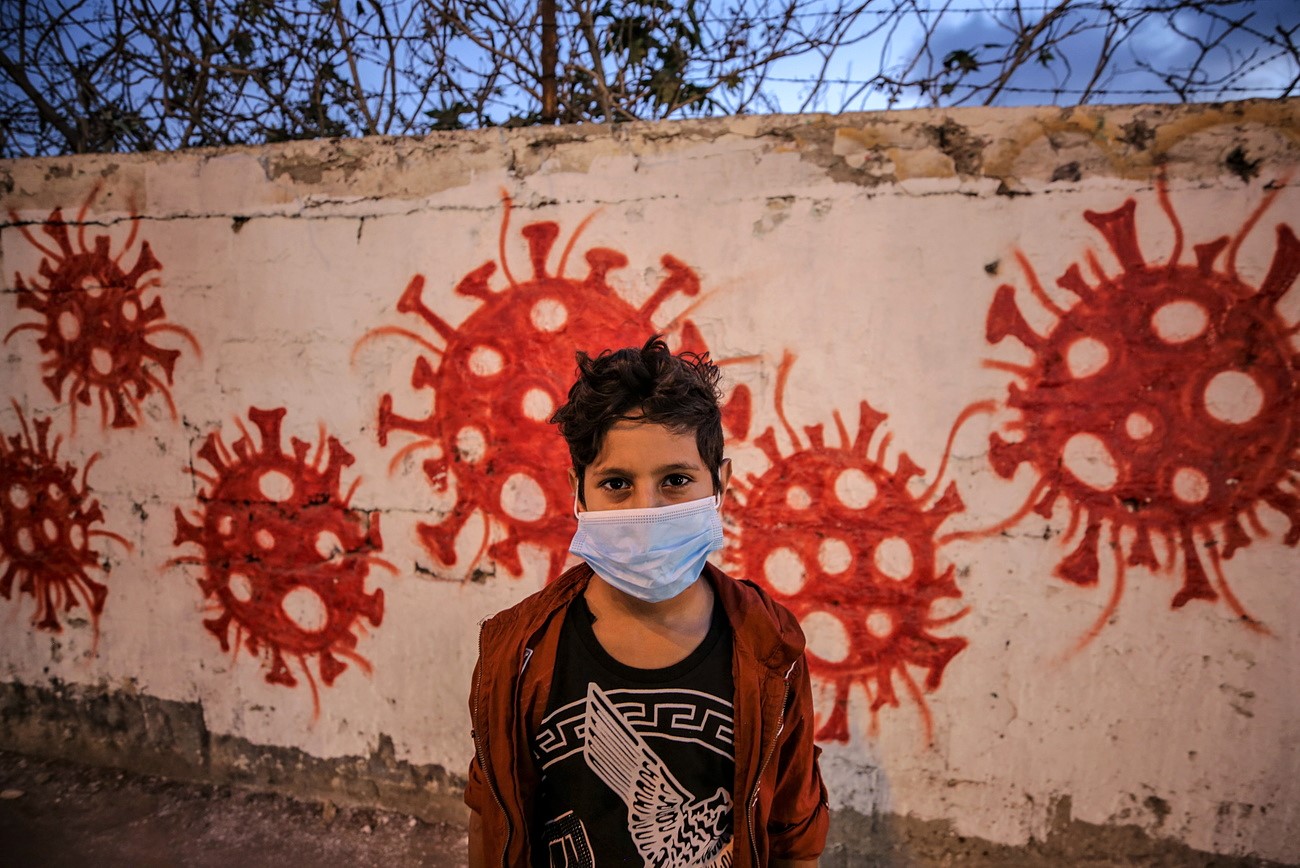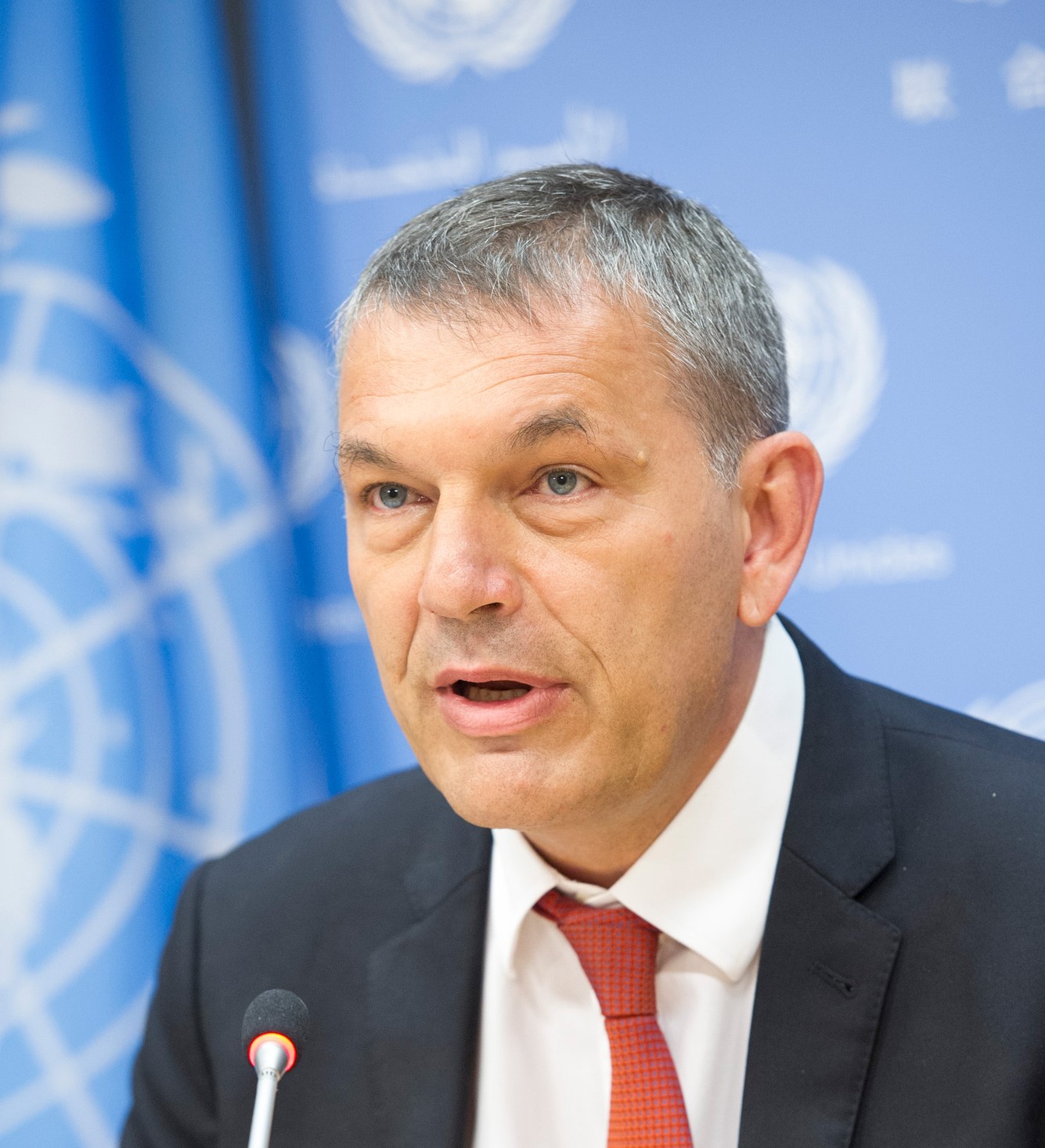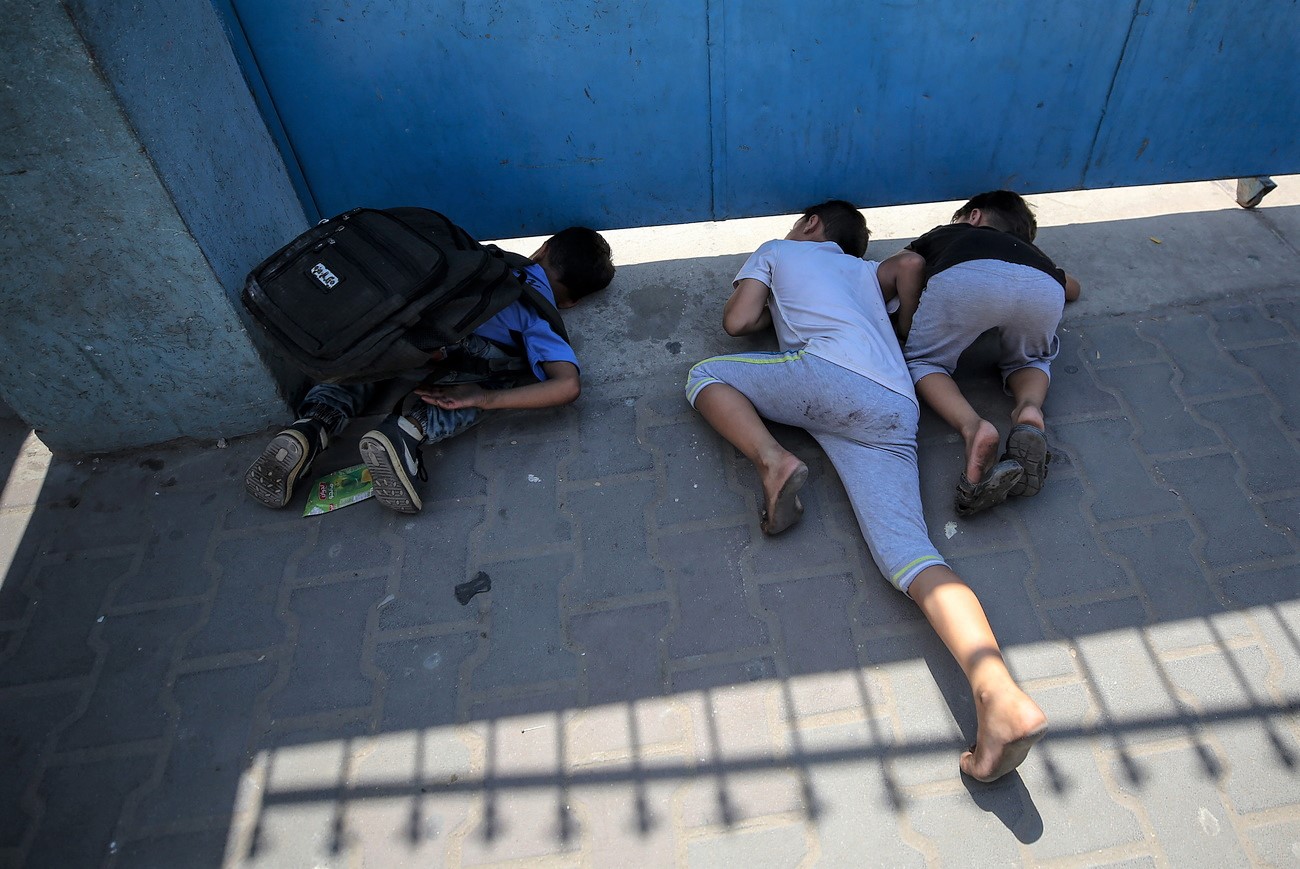
Palestinian refugee agency boss says Swiss talks went well

On his first official visit to Bern, the Swiss head of the United Nation’s agency for Palestinian refugees, UNRWA, underlined the severity of the financial crisis his organisation is facing. But he told SWI swissinfo.ch that talks went well with Foreign Minister Ignazio Cassis, and that confidence has been restored following a crisis linked to his predecessor.
Philippe Lazzarini has been Commissioner-General of UNRWA since April this year. He succeeded Pierre Krähenbühl – also of Switzerland – who was forced to resign amid allegations of mismanagement, which Krähenbühl has denied. But this crisis, along with suggestions by Cassis that UNRWA is part of the Middle East problem, now seem to be a thing of the past.
For 2021-2022, the Swiss government is maintaining the same level of contribution as in previous years, i.e. CHF20 million ($21.9 million) per year, plus an additional CHF1 million for the programme to deal with Covid-19. The foreign affairs ministry will also support the international conference that UNRWA plans to hold next spring to secure its future.
swissinfo.ch: You have stressed repeatedly that UNRWA is facing enormous financial difficulties. Is the picture really as dramatic as you paint it?
P.L.: We are in an exceptional and dangerous situation that is unprecedented in the agency’s history. It’s like an airplane that will soon have to make an emergency landing to avoid a crash.

This liquidity crisis is adding anxiety in a tense region now hit also by Covid-19, reinforcing the despair of Palestinian refugees who see an uncertain future. These budgetary problems come at the worst possible time: in the face of ever-increasing needs, we have never been so financially weakened. I’ve been saying for months that UNRWA will no longer be able to maintain its services, and now here we are. Since November 9, we have no money in the bank to cover salaries for the months of November and December.
The aim of my appeals is to maintain all the activities and teams needed to operate schools for more than half a million Palestinian children, our health centres in the midst of this Covid-19 pandemic, and minimal social services in the face of abject poverty in the region. If by the end of this month I have no information from the donors, I will have to make decisions that will impact our services. This will certainly create panic among already desperate refugees.
swissinfo.ch: Has Switzerland met your expectations?
P.L.: Very much so. Our talks went well, including on the budgetary level. Bern supports our reform programme, which is at the heart of UNRWA’s strategy for the coming years. And I was also able to talk to a number of parliamentarians who take an interest in our work and the situation in the Middle East.
swissinfo.ch: Is the crisis linked to your predecessor over?
P.L.: I believe we have turned the page. That is what I am hearing from donors and member states. The team that was in place last year has been replaced. Numerous reforms have been put in place to make management more efficient, more transparent and more responsive to the staff. I am fully involved in pursuing and deepening these changes. And the feedback I receive from our partners shows that confidence is being fully restored.

More
Swiss foreign minister defends controversial Palestinian comments
swissinfo.ch: How do you see the future?
P.L.: The current funding model is not sustainable. Year after year, the gap continues to grow between the cost of the services we provide and the resources made available. The political support we are getting does not translate financially. That’s why we will be calling for an international conference next spring. There we will present our strategy for the coming years with the aim of securing contributions from member states, especially multi-year commitments so we can have more visibility to organise our actions. I also expect that friendly countries like Switzerland will help us to obtain this support from the member states.
In fact, the agency is mandated to deliver quasi-state services: education, health care and social services for a population of 5.8 million people. But we don’t have any of the revenue opportunities that governments have, either through taxes or borrowing. We depend on voluntary contributions, which today are at an extremely low level, while multiple crises in the region have led to a significant increase in needs.
swissinfo.ch: In 2018, Washington withdrew and ended its $360 million contribution. Do you have any indication what the next US administration’s attitude will be towards UNRWA?
P.L.: The United States has been an important partner over the past decades. I hope that this partnership will resume when the new administration is in place. In recent years, we have maintained our contacts with members of Congress, the Senate and the US Administration at the field level. And the information we are receiving today indicates a willingness to resume this partnership. It remains to be seen when, and to what extent.
swissinfo.ch: The Palestinian question has lost the centrality it once had. The monarchies of the Gulf, and even other Arab countries, are drawing closer to Israel. Does this have effects on UNRWA?
P.L.: Our action is at the social and humanitarian level, but it is taking place in a highly politicised context. I remain convinced that it is in nobody’s interest to see instability in the Palestinian camps, whether in Lebanon, Gaza, East Jerusalem or the West Bank. If UNRWA were to be perceived as incapable of fulfilling its mandate due to lack of resources, this would only fuel the Palestinian refugees’ feeling of having been abandoned by the international community. In such a volatile region, this is an additional cause for despair that must be avoided at all costs.
Member states’ contributions cover only the managerial structure of the organisation, i.e. 150 positions out of the 30,000 employees of the UN agency.
The regular budget planned for 2020 amounts to more than $800 million, plus three emergency programs totalling about $500 million. About half of each of these budgets has been funded to date.
Created by the UN in 1949 after the first Arab-Israeli war, the United Nations Relief and Works Agency for Palestine Refugees in the Near East (UNRWA) today assists 5.8 million Palestinian refugees in Lebanon, Syria, Jordan and the Palestinian territories of Gaza and the West Bank.
The agency runs 711 schools that today take more than half a million children. It manages 144 health centres visited by 3.6 million Palestinian refugees. UNRWA also provides some 270,000 refugees with support in the form of food and targeted financial aid.


In compliance with the JTI standards
More: SWI swissinfo.ch certified by the Journalism Trust Initiative































Join the conversation!